#class division
Text
This was a compromise – it avoided swamping the male vote with women, kept the vote among property-owning classes, and divided women by class: property-owning women got the vote, poor women and married women whose houses were in their husbands' names did not.
"Normal Women: 900 Years of Making History" - Philippa Gregory
#book quote#normal women#philippa gregory#nonfiction#compromise#90s#1890s#19th century#local government act#voting#property owners#classism#class division#class divide#poverty#married
5 notes
·
View notes
Text
Katherine Mansfield writing a story about the enjoyment and monetary freedom of upper class in the late 19th and early 20th century and at the same time criticising them and dragging the same class through dirt, is just PURE GENIUS.
#marxism#classic literature#thegardenparty#katherine mansfield#bourgeois#proletariat#class division#university
2 notes
·
View notes
Text
I just saw a rehash of a poll I made based on a tweet that copied from multiple posts I've said for years and it felt so odd that I couldn't even get angry, I just had to close the app because it felt so weird
#it was a rehash of the Disneyland class division in America that I've been pointing out for years#i guess my posts and the words within are important enough to copy for clout lol#I'm flattered#true to abled society the tweet that stole the post from me erased the disabilty issue#disability is a class of its own#I'm not blaming the poll maker so much because they prolly didn't know but the tweet thing was weird#Disneyland#Disneyworld#class division
3 notes
·
View notes
Text
Been listening to old songs about class struggle, and realised in the middle of Billy Bragg’s Between The Wars that none of the adults ever speak about their families growing up except Saul.
Got me thinking… if the Burned Ones were causing chaos across the realms back in the day, did the decision makers prioritise who they would protect, and did they prioritise fairy families? Was it only ordinary Otherworlders like Saul that experienced catastrophic loss? Does that explain why it’s only Saul that seems to have darkness in his past, and why Farah and Ben could never truly understand Saul and his experience? Why everyone seems to accept that specialists go out first like lambs to a slaughter because fairies are always more valuable to protect?
(also… probably leaves it open for Andreas to be the only one that did understand, as a friend/lover however you wish to view it).
#fate: the winx saga#fate the winx saga#ftws#saul silva#class division#fairies vs Otherworlders#Eloi vs Morlocks vibes
8 notes
·
View notes
Text

Eating the Image: The Graphic Designer and the Starving Audience, Frances C. Butler [jstor]
[id in alt text and under the cut]
The ideology of consumer warfare dictates that those who amass money and wish to authenticate themselves must know how to use, hold, and stand next to their consumer goods, so that they will present the image of power, this being the second major reward promised. Most consumers check the mirror of print graphics, whether looking for the imagery of the dandy collector Huysmans, in Architectural Digest or the correct body shape for tennis in Sports Illustrated, because each nuance of the object becomes a critical demarcation of the Principle of Consumer Originality (being exactly
like everyone else while being completely original). The corollary to this ideology already discovered by its first practitioners, the Roman emperor Hadrian or Louis XIV himself, is that the use of the object for self-definition and power soon reduces the options for behavior to a catalog of correct responses, leading to ennui, a profound and futile boredom.
#own post#booklr#literature#reading#studying#studyblr#graphic design#art#art history#consumerism#capitalism#anti capitalism#class division
4 notes
·
View notes
Text
The deaths of 700,000 British men in the First World War increased the proportion of single women in the population, especially among the officer classes where mortality was high.
"Normal Women: 900 Years of Making History" - Philippa Gregory
#book quotes#normal women#philippa gregory#nonfiction#death#britain#first world war#ww1#wwi#world war 1#world war i#world war one#single women#officer#class division#mortality
1 note
·
View note
Text
U.S. Dorothea Lynde Dix
one day in 1814 she appeared on her paternal grandmother’s doorstep in Boston Massachusetts, having had enough of what biographer Francis Tiffany termed as Dorothea’s “immediate parents lacking in energetic fibre.”
(April 4, 1802 – July 17, 1887)
Dorothea (Christened Dorothy) Lynde Dix was born a pseudo-pauper, for although her paternal grandparents were well-off, her father and mother were rather underfunded. Dorothea was born to Joseph and Mary Dix on a tract of land owned by Joseph’s father, Elijah Dix, in Hampden, Maine. Her father was known for his fanatical flights of religious fervor equal only to…

View On WordPress
#biography#Class division#Dorothea Lynde Dix#Group Biography#group history#history#Insane#Poor#women&039;s history#women&039;s biography
0 notes
Text
Unraveling the Fabric of Time: A Journey through H.G. Wells' "The Time Machine: An Invention"
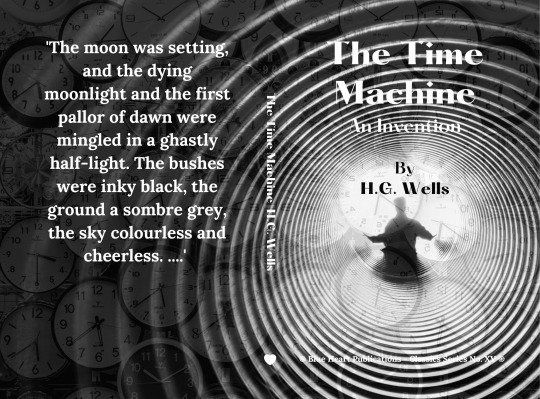
H.G. Wells' "The Time Machine: An Invention" catapults readers into the fascinating realm of speculative fiction, offering a gripping narrative that transcends the boundaries of time and imagination. Originally published in 1895, this novella has solidified its place as a classic work of science fiction, exploring profound themes and propelling readers through the cosmic corridors of time.
At its core, "The Time Machine" is a tale of scientific curiosity and its consequences. The protagonist, known simply as the Time Traveller, constructs a machine that enables him to traverse the temporal landscape. His first-person narrative unfolds as a dinner party yarn, where he recounts his astonishing adventures to a group of skeptical friends. Wells masterfully employs the frame narrative, immersing readers in the suspense of the Time Traveller's extraordinary tale.
One of the novella's strengths lies in its imaginative world-building. Wells introduces the reader to the distant future, a world divided into two distinct races—the Eloi and the Morlocks. The Eloi, frail and childlike, inhabit a utopian surface world, while the subterranean Morlocks, eerie and industrious, lurk in the shadows. This stark dichotomy serves as a social commentary on class division and the potential consequences of unchecked technological progress. The novella acts as a cautionary tale, urging readers to contemplate the long-term implications of societal choices.
Wells' writing style is both engaging and thought-provoking. The vivid descriptions of the futuristic landscapes and the Time Traveller's encounters with strange beings evoke a sense of wonder and curiosity. The author skillfully weaves scientific concepts into the narrative, challenging readers to grapple with complex ideas surrounding time, relativity, and the consequences of scientific advancement.
Beyond its scientific and social commentary, "The Time Machine" delves into the existential and philosophical dimensions of time travel. The Time Traveller's experiences prompt profound reflections on the nature of existence, mortality, and the inexorable march of time. Wells invites readers to contemplate the fragility of human civilization and the transient nature of life itself.
The novella's enduring appeal lies in its ability to resonate with readers across generations. Its exploration of time as a narrative device and its examination of societal structures and human nature continue to captivate audiences. Wells' legacy as a pioneer of science fiction is cemented by "The Time Machine," a timeless work that invites readers to contemplate the mysteries of the universe and the consequences of tampering with the fabric of time.
In conclusion, "The Time Machine: An Invention" is a literary gem that transcends the boundaries of its era, offering a timeless exploration of scientific, social, and existential themes. H.G. Wells' narrative prowess and imaginative vision make this novella an essential read for those eager to embark on a thought-provoking journey through the corridors of time.
H.G. Wells' "The Time Machine: An Invention" is available in Amazon in paperback 10.99$ and hardcover 18.99$ editions.
Number of pages: 129
Language: English
Rating: 8/10
Link of the book!
Review By: King's Cat
#H.G. Wells#The Time Machine#Science fiction#Time travel#Speculative fiction#Novella#Time Traveller#Futuristic world#Utopia#Dystopia#Eloi#Morlocks#Social commentary#Class division#Technological progress#Cautionary tale#World-building#Frame narrative#Scientific concepts#Existential themes#Philosophical exploration#Mortality#Human nature#Time as a narrative device#Exploration of time#Relativity#Consequences of scientific advancement#Curiosity#Wonder#Reflection
0 notes
Text
Unraveling the Fabric of Time: A Journey through H.G. Wells' "The Time Machine: An Invention"

H.G. Wells' "The Time Machine: An Invention" catapults readers into the fascinating realm of speculative fiction, offering a gripping narrative that transcends the boundaries of time and imagination. Originally published in 1895, this novella has solidified its place as a classic work of science fiction, exploring profound themes and propelling readers through the cosmic corridors of time.
At its core, "The Time Machine" is a tale of scientific curiosity and its consequences. The protagonist, known simply as the Time Traveller, constructs a machine that enables him to traverse the temporal landscape. His first-person narrative unfolds as a dinner party yarn, where he recounts his astonishing adventures to a group of skeptical friends. Wells masterfully employs the frame narrative, immersing readers in the suspense of the Time Traveller's extraordinary tale.
One of the novella's strengths lies in its imaginative world-building. Wells introduces the reader to the distant future, a world divided into two distinct races—the Eloi and the Morlocks. The Eloi, frail and childlike, inhabit a utopian surface world, while the subterranean Morlocks, eerie and industrious, lurk in the shadows. This stark dichotomy serves as a social commentary on class division and the potential consequences of unchecked technological progress. The novella acts as a cautionary tale, urging readers to contemplate the long-term implications of societal choices.
Wells' writing style is both engaging and thought-provoking. The vivid descriptions of the futuristic landscapes and the Time Traveller's encounters with strange beings evoke a sense of wonder and curiosity. The author skillfully weaves scientific concepts into the narrative, challenging readers to grapple with complex ideas surrounding time, relativity, and the consequences of scientific advancement.
Beyond its scientific and social commentary, "The Time Machine" delves into the existential and philosophical dimensions of time travel. The Time Traveller's experiences prompt profound reflections on the nature of existence, mortality, and the inexorable march of time. Wells invites readers to contemplate the fragility of human civilization and the transient nature of life itself.
The novella's enduring appeal lies in its ability to resonate with readers across generations. Its exploration of time as a narrative device and its examination of societal structures and human nature continue to captivate audiences. Wells' legacy as a pioneer of science fiction is cemented by "The Time Machine," a timeless work that invites readers to contemplate the mysteries of the universe and the consequences of tampering with the fabric of time.
In conclusion, "The Time Machine: An Invention" is a literary gem that transcends the boundaries of its era, offering a timeless exploration of scientific, social, and existential themes. H.G. Wells' narrative prowess and imaginative vision make this novella an essential read for those eager to embark on a thought-provoking journey through the corridors of time.
H.G. Wells' "The Time Machine: An Invention" is available in Amazon in paperback 10.99$ and hardcover 18.99$ editions.
Number of pages: 129
Language: English
Rating: 8/10
Link of the book!
Review By: King's Cat
#H.G. Wells#The Time Machine#Science fiction#Time travel#Speculative fiction#Novella#Time Traveller#Futuristic world#Utopia#Dystopia#Eloi#Morlocks#Social commentary#Class division#Technological progress#Cautionary tale#World-building#Frame narrative#Scientific concepts#Existential themes#Philosophical exploration#Mortality#Human nature#Time as a narrative device#Exploration of time#Relativity#Consequences of scientific advancement#Curiosity#Wonder#Reflection
1 note
·
View note
Text


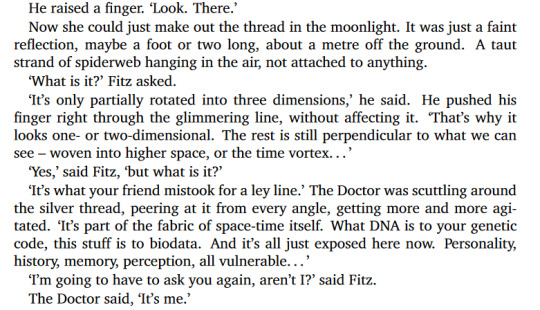
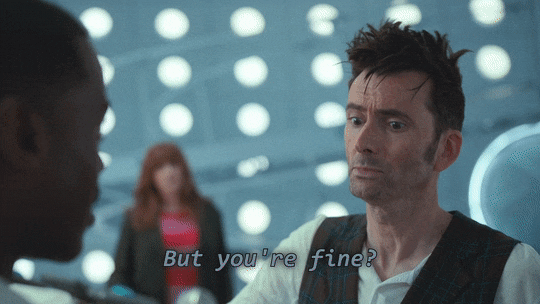
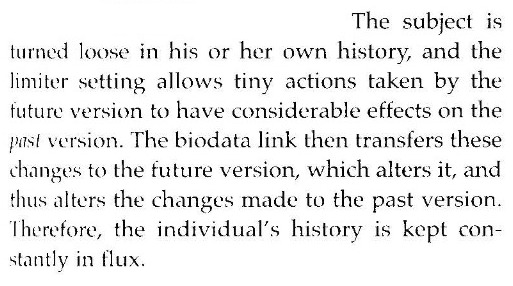
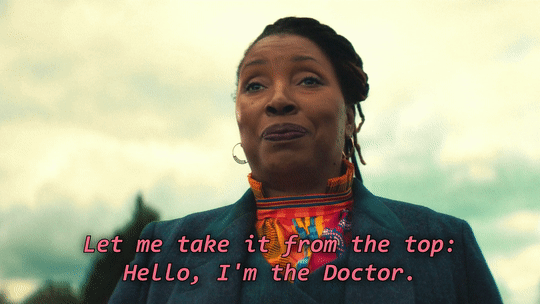

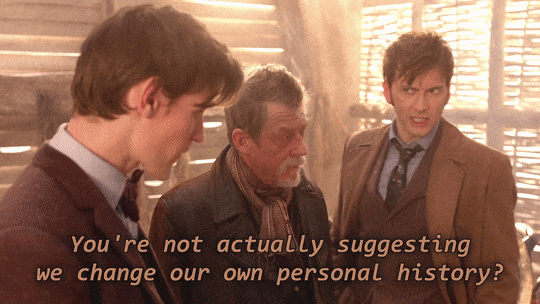

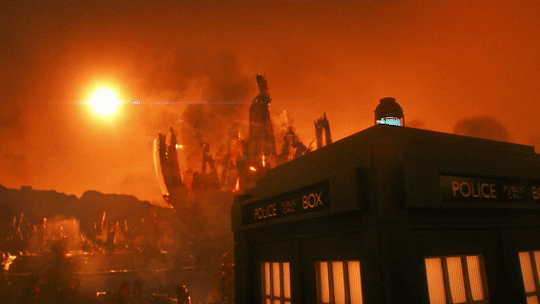


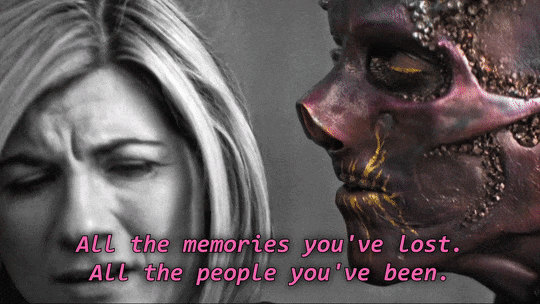

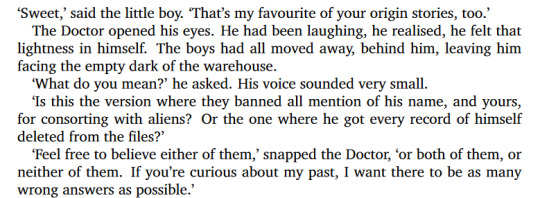


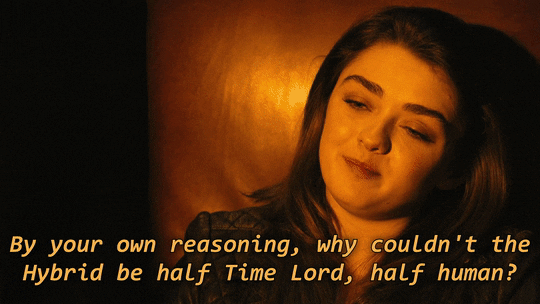
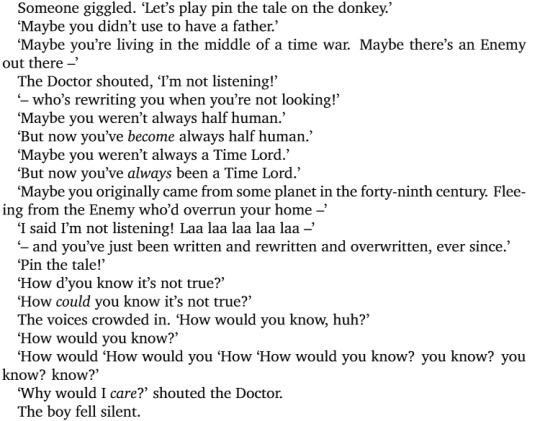
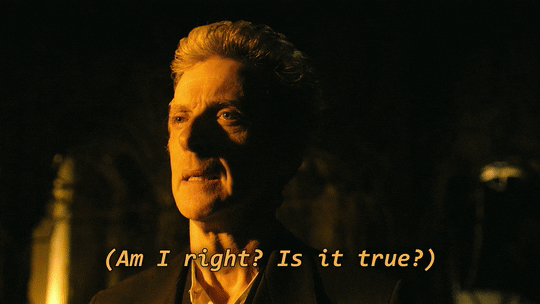


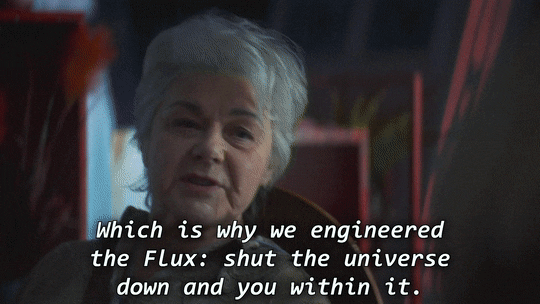

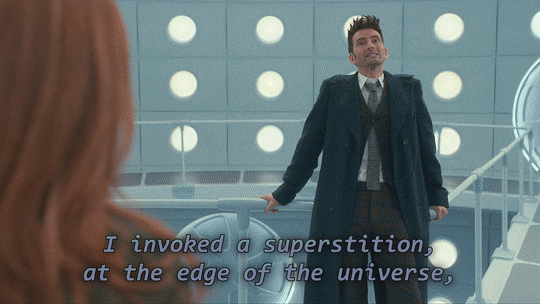
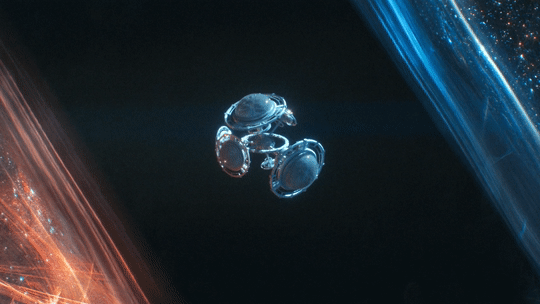
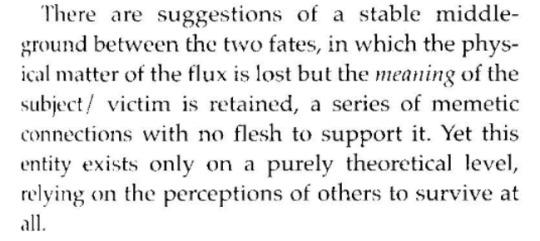
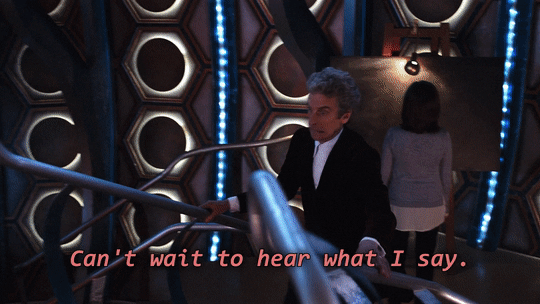


FLUXES [Celestis: Engineered Participants / Technologies]
Example: "DOCTOR, The"
[Image description, courtesy of @quailfence: a series of pictures of text, alternated with screencaps and gifs from Doctor Who.
1: Text: Fluxes: [Celestis: Engineered Participants/Technology] Individuals transposed backwards in time but not too far in space, using a very high chaotic limiter setting and tied to their home period by a thread of biodata
2: The Eleventh Doctor stands in the future corpse of his TARDIS, looking and a pulsing stream of light that has replaced the console. He says, "That is the scar tissue of my journey through the universe. My path through time and space."
3: Text: He raised a finger. 'Look. There.
Now she could just make out the thread in the moonlight. It was just a faint reflection, maybe a foot or two long, about a metre off the ground. A taut strand of spiderweb hanging in the air, not attached to anything.
'What is it?' Fitz asked.
'It's only partially rotated into three dimensions,' he said. He pushed his finger right through the glimmering line, without affecting it. 'That's why it looks one- or two-dimensional. The rest is still perpendicular to what we can see - woven into higher space, or the time vortex…'
'Yes,' said Fitz, 'but what is it?' 'It's what your friend mistook for a ley line.' The Doctor was scuttling around the silver thread, peering at it from every angle, getting more and more agitated. 'It's part of the fabric of space-time itself. What DNA is to your genetic code, this stuff is to biodata. And it's all just exposed here now. Personality, history, memory, perception, all vulnerable…'
'I'm going to have to ask you again, aren't I?' said Fitz.
The Doctor said, 'It's me.'
4: The Fourteenth and Fifteenth doctors in the TARDIS. 14: "But you're fine?" 15: "I'm fine, because you fixed yourself. We're Time Lords, we're doing rehab out of order."
5: Text: The subject is turned loose in his or her own history, and the limiter setting allows tiny actions taken by the future version to have considerable effects on the past version. The biodata link then transfers these changes to the future version, which alters it, and thus alters the changes made to the past version. Therefore, the individual's history is kept constantly in flux.
6: The Fugitive Doctor says, "Let me take it from the top: Hello, I'm the Doctor."
7: Text: Let me finish. Think back to that time when you went to see your previous selves.
8: Ten, Eleven, and War talk to each other. Ten: "You're not actually suggesting that we change our own personal history?" Eleven: "We change history all the time. I'm suggesting far worse."
9: Text: 'Maybe there's no one home on Gallifrey,' said the boy softly. There was just the one of him.
The Doctor looked at him, cupping the small white cube in his hands. The boy said, Maybe they all left. Or maybe the whole planet's being destroyed, and undestroyed, and destroyed, and you just caught them at the wrong moment.
10: The TARDIS by the ruins of Gallifrey
11: Text: 'It's impossible,' said the Doctor. 'It's impossible for my people. Our past is unreachable. What's written can't be unwritten.'
'Who said your history can't change?'
Another boy answered, 'Someone from his history.'
And another: 'Maybe it's the second-biggest lie in Time Lord history.'
12: Dhawan!Master tells Thirteen, "You are the Timeless Child."
13: Thitreen stares at a ruined house. Swarm whispers in her ear and tells her, "All the memories you've lost, all the people you've been. It's all in there, contained within that house."
14: Text: And it was like the Doctor's home. As if his ship understood the loss of the House and had compensated to fill the emptiness. Shadowy corridors, alcoves and stairways, a secret at every turn. Like being in the Doctor's head. Like his life, for that matter, the details of which were strewn like flotsam across the floor.
15: Text: 'Sweet,' said the little boy. 'That's my favourite of your origin stories, too.'
The Doctor opened his eyes. He had been laughing, he realised, he felt that lightness in himself. The boys had all moved away, behind him, leaving him facing the empty dark of the warehouse.
'What do you mean?' he asked. His voice sounded very small.
'Is this the version where they banned all mention of his name, and yours, for consorting with aliens? Or the one where he got every record of himself deleted from the files?'
'Feel free to believe either of them,' snapped the Doctor, 'or both of them, or neither of them. If you're curious about my past, I want there to be as many wrong answers as possible.'
16: The Eighth Doctor tells someone, "I'm half human. On my mother's side."
17: Text: 'Well he's a hybrid, you know that. A Gallifreyan not born of Gallifreyan, the one who unites the two races and brings good old human niceness into their alien society. Aliens need that, y'know.'
'A human hybrid? She saw the contempt in his curling lip. 'Pseudoscientific nonsense. There's no evidence,' he repeated.
'He's allowed to be different. He's got a prophecy and everything.'
18: Lady Me says, "By your own reasoning, why couldn't the Hybrid be half Time Lord, half human?"
19: Text: Someone giggled. 'Let's play pin the tale on the donkey.'
'Maybe you didn't use to have a father.'
'Maybe you're living in the middle of a time war. Maybe there's an Enemy out there -'
The Doctor shouted, 'I'm not listening!'
'- who's rewriting you when you're not looking!'
'Maybe you weren't always half human.'
'But now you've become always half human.' 'Maybe you weren't always a Time Lord.'
But now you've always been a Time Lord.'
'Maybe you originally came from some planet in the forty-ninth century. Fleeing from the Enemy who'd overrun your home -'
'I said I'm not listening! Laa laa laa laa laa -'
'- and you've just been written and rewritten and overwritten, ever since.'
'Pin the tale!'
'How d'you know it's not true?'
'How could you know it's not true?'
The voices crowded in. 'How would you know, huh?'
'How would you know?'
'How would 'How would you 'How 'How would you know? you know? you know? know?'
'Why would I care?' shouted the Doctor.
The boy fell silent.
20: Lady Me asks, "Am I right? Is it true?" Twelve replies, "Does it matter?"
21: Text: However, the one group from the Homeworld which has excelled at flux-engineering is the Celestis.
22: Two asks the Time Lords, "Now then… what about me?"
23: Tecteun tells Thirteen, "Which is ehy we engineered the Fluyx: Shut the universe down and you within it."
24: Text: Even Mictlan itself can be considered a kind of enormous flux, an endlessly-shifting realm so cortosive to the rest of history that its heartland has to be kept on the outer skin of the universe
24: The Fourteenth Doctor tells Donna, "I invoked a supersition, at the edge of the universe, where the walls are thin and everything is possible."
25: The space station from Wild Blue Yonder
26: Text: There are suggestions of a stable middle-ground between the two fates, in which the physical matter of the flux is lost but the meaning of the subject/ victim is retained, a series of memetic connections with no flesh to support it. Yet this entity exists only on a purely theoretical level, relying on the perceptions of others to survive at all.
27: The Twelfth Doctor walks up to the TARDIS console. He says, "Can't wait to hear what I say." Glancing at the viewer, he adds, "I'm noting without an audience."
28: Text: You know what Sam represents. If a tree falls in a forest and no one's there to hear it, does it make a sound? Stop me if I'm getting too abstract here, but if a Time Lord saves the world and nobody witnesses him doing it, does history care? She's your witness. The thing you need to make you whole.
29: The First Doctor looks at the viewer and says, "Incidentally, a Happy Christmas to all of you at home!" End description.]
[Plain text: Fluxes [Celestis: Engineered Participants / Technologies] Example: "Doctor, The". End plain text.]
@dw-described
#Doctor Who#DW Meta#DW Theory#First Doctor#Second Doctor#Eighth Doctor#Tenth Doctor#Eleventh Doctor#Twelfth Doctor#Thirteenth Doctor#Fourteenth Doctor#Fifteenth Doctor#Martin!Doctor#Tecteun#The Division#The Flux#Faction Paradox#Doctor Who EU#The Book of the War#Unnatural History#just some random thoughts#linking together some of the parallels and headcanons over the years into a chain#actually was spurred by me thinking about the 'destruction of the universe' line in Class and connecting it to the Flux#but had to cut it#as well as a lot more#due to the 30 image limit#so consider also the Solitract; the Great Old Ones from the previous universe; the Doctor as a 'virus'; “once upon several times” etc.#DW Spoilers#Doctor Who Spoilers#for Tennant and Gatwa together
215 notes
·
View notes
Text
kunikida runs a down low secret teaching ring
ppl, ada, civilians, pm, etc, will come to him in secret becuz they didn't get an education and he'll give them ways to test into or out of or whatever they want while also giving them specialized study books that they give him back to get graded
its down low and secret becuz his clients can be anyone and also because he keeps illegally copied and printed copies of several textbooks for ppl who really cant afford to get their own or have trouble borrowing them from libraries
#he sadly cant give lectures but#still he's doing his best#he just finished teaching atsushi basic stuff and is now helping him sign up for online classes that r flexible enough for him#he also just finished teaching q multiplication and is now theyre gonna start learning division#he's also helping chuuya discreetly sign up for online classes where no one else will know him and also gave him textbooks that cover#a little bit of everything so he can organize his lack of proper education and stuff he does actually know#hmm#and more#bungou stray dogs atsushi#bungo stray dogs#bungou stray dogs#kunikida doppo#bsd#bungou stray dogs kunikida#the ada#pm
203 notes
·
View notes
Text
no but seriously if any (or worst case scenario, all) of the ASL actually joined the Marines, Garp would be begging them to go and do anything else, even if that meant becoming pirates, within a week flat
#one piece#portgas d ace#revolutionary sabo#monkey d. luffy#monkey d garp#it'd take the first financial report i bet#''sir those three ate a year's worth of food for an entire division. in a week''#they cause chaos wherever they go#Ace would terrorize the teachers#he'd fall asleep like a dozen times a lesson#there's a betting pool on how many times he does it any given time#sparring? more like spa-DONE#after the first day no one wants to fight him#bc he would not stop until he was physically stopped#and god help you if you insulted his brothers within his hearing range#Sabo would be fine during the classes#which i assume would consist of stuff like geography and world history#if by 'fine' you mean 'will grill the teachers about everything and anything'#he would have more questions than they would have answers#and any sign of injustice#especially one commited by the nobles#would get very vocally and very viciously criticized#as for Luffy#he'd join the marines but he wouldn't join-join them#y'all know what i mean#he'd still proclaim that he'll be the king of the pirates even in full marine outfit no matter who he's talking to#not to mention his fruit#marines have to know how to swim#they'd need to get freshwater for him (might be wrong but it's just seawater that's non-swimmable right?)#anycase apparently there's a 30 tags limit and i just ran out rip
62 notes
·
View notes
Text
hadestown/the hungers games parallels are abundant but right now I’m just thinking about “the kingdom will fall for a song” vs Katniss singing to Rue being the catalyst for the revolution
#yeah yeah we know ballads songbirds and snakes manufactured class divisions for the purpose of hiding the real enemy#whatever you get it#hadestown#the hunger games#thg#katniss everdeen#rue thg#sorry dcla mutuals I’m in this rn dw I can do both
77 notes
·
View notes
Text
#this type of class division fascinates the hell out of me#my bestie went like every year my roommate went twice and I've never been#which fits up with the fact that bestie went to private school where soldiers never came to recruit#roommate went to a middle class public school where soldiers didn't come to recruit until junior year#and I went to a sixty percent poverty rate school where soldiers were coming to propagandize to us in fourth grade
2K notes
·
View notes
Text
Following my other thoughts on the class division between fairies and ordinary Otherworlders, I find the accents of the British actors interesting too.
I may be reading too much into it and apologies if I’m about to make massive generalisations. I did do a little research which supports my theory.
Anyway, based on my link above, the British fairies all speak ‘Received Pronunciation’ English (Farah, Rosalind, Luna, Terra, Aisha, Stella, Beatrix, Musa, Ben, Sam). The specialists, on the other hand, speak variations of other accent types (Saul, Riven, Dane). If you read the link, it suggests those other accent types are historically associated with working class, multicultural and socially disadvantaged backgrounds.
And how are the Gaelic accents represented? Well there’s two Irish-sounding characters: one is the bad guy (Sebastian) and the other is -surprise surprise- a specialist (Kat).
It’s either some serious subconscious bias playing out, or there was a deliberate and subtle decision to use the already established accent stereotypes/generalisations to underscore the class difference between being a fairy and an ordinary Otherworlder in the Fate universe.
The only difference to this theory is Sky and Andreas. But given their particular backgrounds (war hero and son of war hero), it’s not a surprise that their accents would also differentiate them from the other specialist riff-raff.
I can’t think of any other exceptions 🤔 happy to be proven otherwise?
#fate the winx saga#ftws#fate: the winx saga#class division#fairies vs otherworlders#or is this just a Solarian/Alfean problem?#happy to be told if I’ve characterised an accent incorrectly#this is what I thought about today#why brain WHY
3 notes
·
View notes
Text
youtube
Oy, Ir Narishe Tsionistn / Oh, You Foolish Little Zionists performed by Oy Division, Daniel Kahn & Psoy Korolenko
#anti-zionism#jewish#leftist music#music#video#daniel kahn#oy division#psoy korolenko#yiddish#free palestine#palestine#israel#Youtube#working class#socialism#communism#der bund#unionism
22 notes
·
View notes